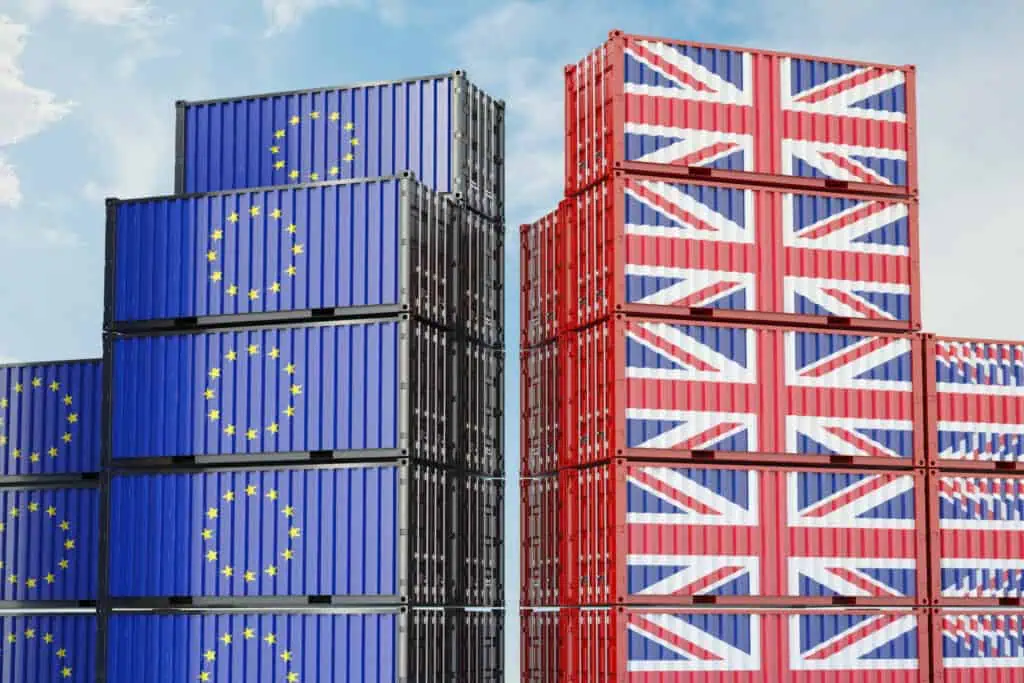In today’s interconnected world, the expansion of international trade presents exciting opportunities for ecommerce businesses to grow globally. However, crossing borders comes with complexities, regulations, and potential risks that require careful attention. That’s where compliance comes in – staying current and adhering to global trade regulations is not only a legal obligation, but also a strategic necessity that can have crucial effects on a brand’s reputation, profitability, and competitiveness. In this article, we’ll discuss the significance of trade compliance and how it sets the foundation for a successful international business plan, along with keeping you informed about recent regulation updates.
Why Is Trade Compliance So Important?
One of the primary reasons staying compliant with trade regulations is essential for global brands is the mitigation of legal risks. Non-compliance can lead to severe penalties, fines, and shipment delays, ultimately putting your company’s operations, profit, and access to foreign markets in jeopardy.
Aside from the obvious legal requirements, maintaining a comprehensive understanding of global trade compliance will streamline logistics. In-depth knowledge of customs requirements and necessary documentation as well as import and export regulations ensures the seamless movement of your products across borders. As a result, supply chain efficiency improves, shipping delays reduce, and overall customer satisfaction increases.
And last but not least, being compliant can even give your business a competitive edge in the marketplace. International trade is a dynamic landscape with rules often undergoing changes due to political, economic, and environmental factors. Staying up-to-date with any developments enables your brand to proactively adapt to new challenges and stay ahead of the curve. Additionally, meeting country-specific regulations will grant you access to new markets, expanding your customer base and revenue potential.
Keeping Up with Customs and Trade Regulations
Navigating the complexities of cross-border trade isn’t easy, especially with ever-evolving rules and regulations. That’s why partnering with an international solutions provider like Passport® with in-house compliance experts is essential to ensure your company’s long-term success in the global marketplace. Our team is constantly monitoring regulatory developments to help brands become and stay compliant.
Here are recent updates brands should be aware of:
- United Kingdom (UK) – The UK Border Force has recently stepped up enforcement of value-added tax (VAT) laws by holding low-value shipments that do not have a UK VAT ID and even requiring merchants to provide a recent tax return demonstrating compliance. For orders under £135, ecommerce merchants are required to collect the 20% VAT at checkout and remit it quarterly to HMRC.
- Norway (NO) – As of January 2024, Norway has eliminated the VAT de minimis threshold, which was previously set at NOK 350 (~$25 USD), meaning VAT is now levied on all imported products, regardless of their value.
- Singapore (SG) – Singapore’s standard VAT rate increased from 8% to 9% starting in January 2024.
- Switzerland (CH) – Switzerland’s standard VAT rate increased from 7.7% to 8.1% starting in January 2024.
- Australia (AU) & New Zealand (NZ) – Tax authorities in Australia and New Zealand have recently cracked down on goods and services tax (GST) registration for ecommerce transactions. In Australia, when merchants sell over $75,000 AUD (~$49,000 USD) worth of products into AU within a 12-month period, they must register for a tax ID and collect the 10% GST at checkout from their customers. In New Zealand, when merchants sell over $60,000 NZD (~$37,000 USD) worth of products into NZ within a 12-month period, they must register for a tax ID and collect the 15% GST at checkout from their customers.
- European Union (EU) – In March 2023, the European Union (EU) implemented ICS2, an advanced import control system for all goods entering the market that requires carriers to electronically submit mandatory information like Harmonized System (HS) codes and product descriptions before packages arrive in the EU, Norway, and Switzerland.
In summary, the importance of trade compliance and staying on top of regulation updates cannot be emphasized enough. Beyond the legal requirements, it plays a critical role in a company’s overall success and sustainability in international markets. Staying compliant mitigates risks, fosters supply chain efficiency, unlocks new market opportunities, and keeps you ahead of the competition. Embracing the significance of trade compliance is an indispensable foundation for businesses aiming to thrive in the dynamic world of global ecommerce.
How Passport Can Help
Passport’s team of licensed customs brokers and trade advisors is ready to guide you through the complexities of compliance in international markets. We’re dedicated to offering brands support in determining product eligibility, properly classifying products, providing accurate goods descriptions, complying with local tax requirements, and keeping you informed of relevant regulation updates.
To further support your international growth, Passport Global™ offers an all-in-one solution that simplifies compliance and cross-border shipping. Our service combines personalized advisory with technology-driven strategies to ensure your products not only comply with international regulations but also appeal to global markets using localization tools. With Passport Global, navigating the complexities of global trade becomes seamless, allowing you to focus on growing your business. Reach out to our team today to see how Passport can simplify your journey towards international success.













